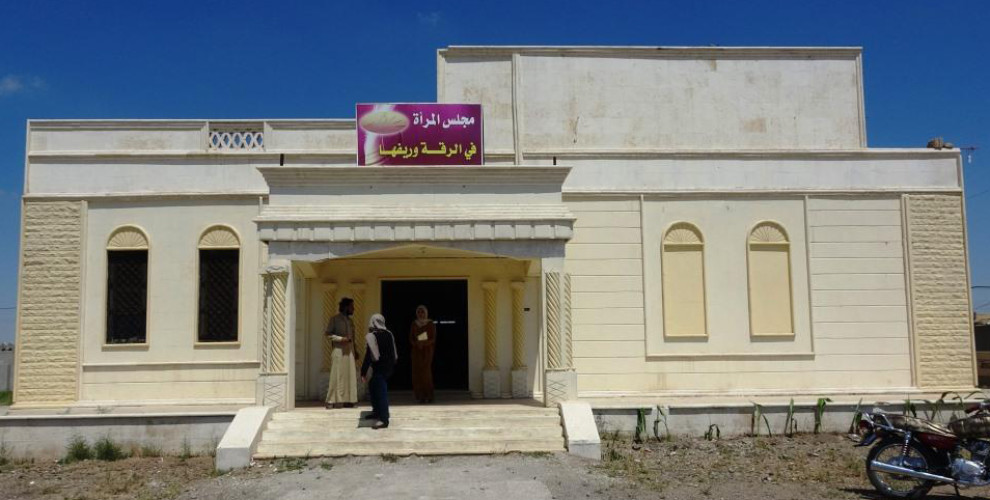Women, the driving force of the reconstruction of Raqqa
After four years of DAESH darkness, Raqqa is flourishing and women play a crucial role in the new society.
After four years of DAESH darkness, Raqqa is flourishing and women play a crucial role in the new society.

After four years of heavy occupation by the DAESH (ISIS) mercenaries, the city of Raqqa was liberated by the Syrian Democratic Forces on 20 October 2017.
It was a huge relief for people who finally returned to life, after experiencing the most inhuman and violent repression. Executions were carried out at the public square and the stadium, women saw their life turned in a real nightmare when the mercenaries declared Raqqa their Caliphate’s capital.
Women, the driving force or reconstruction
It is not a surprise then to see that, seven months after the liberation perhaps the main driving force in the rebuilding not just of the city but of life, are indeed women.
Soon after the liberation by the Kurdish-led SDF forces, the Raqqa Civilian Assembly was set up. Women are represented in the assembly and participate in organising and carrying out its different tasks.
Women’s committee in the Civilian Assembly
Apart from their work in the Women's committee of the Assembly, women are playing an important role in all other committees, such as the Social Justice, Health, Culture and Art ones.
As the Assembly began to work in the city, the Women’s Committee was immediately set up and got involved in the organization and setting up of women's communes. Communes are the favoured structure to organise and emancipate women.
Communes for the emancipation of women
There are already 14 women communes in the al-Mashlab neighbourhood and work is underway to build women's communes throughout the whole city of Raqqa.
In addition to the women's communes, the Women's Council was established in the area of al-Hatuniyah.
The Syrian Women's Academy was established in the north of the Raqqa and it provides for the education of women. The Academy was set up as a means to fight and reject the patriarchal mentality still present in the city and so far has completed three training programs.
Women’s Houses to solve legal issues
The opening of the Women's Houses proved to be another correct election. And indeed the Women’s Houses have become the first address women turn to when they seek solution to the problems they face daily.
Eight Women’s Houses have already been opened in Raqqa. And since the liberation of the city, they have solved 350 of the 400 complaints presented, while 50 complaints, for the complexity of the issues they dealt with, were referred to the Social Justice Committee.
Speaking to ANHA news agency, Feyruz Xelil, President of the Raqqa Civilian Women's Bureau, said: "Women have played a leading role in the liberation of the city of Raqqa. Women's communes and councils are making huge steps in organizing and emancipating women”.
New job opportunities for women
Feyruz Xelil noted that Women's committees are constantly visiting women to learn of their needs and problems. The committees, - she said - are working hard in order to meet the needs of the women in the region.
Stressing that the Committee has also organised workshops for women to offer job opportunities and training, Feyruz Xelil said that employment projects are being set up. She also added that the cooperation with Raqqa Agriculture Committee has meant the creation of job opportunities for women in the agriculture sector.
Feyruz Xelil called on all women to keep participating in the council meetings and to make their proposals there, in order to keep reclaiming their role in the society and strengthen their presence in all civilian structures and institutions.